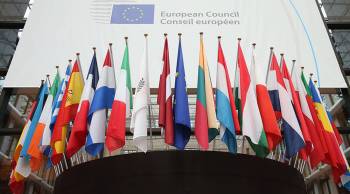TEXT OF STORY
Scott Jagow: This week, we’re showing you the Middle East at work. One area seems to be working quite well: the market for Islamic financial products.
It’s expected to grow by up to 15 percent a year. Financial centers around the world are scrambling to get in on it. Stephen Beard reports from Dubai.
Stephen Beard: So what is an Islamic bond?
Islamic lawyer: The nature of the sukuk transaction is such that the actual amount is already predetermined, and that’s done at a lower level within the structure . . .
He’s lost me already. To unravel some Islamic financial products requires a small army of lawyers. And the lawyers have been duly descending on Dubai:
Oliver Ahga: This is the result of the explosive growth that we’ve experienced in Dubai.
Eighteen months ago, Oliver Agha had four attorneys on his staff. Now he has 65, soon there’ll be 100, many of them trained in Sharia or Islamic law to meet the growing demand for Islamic financial products.
Agha: Islamic Finance has awoken from a very long slumber, and I think will sort of light up the financial scene here in the Middle East and in particular in Dubai.
Dubai wants to specialize in the issuing and trading of Islamic bonds called sukuk. These are designed to get around the Islamic prohibition of charging interest. For example, they treat the bondholder as the owner of some of the company’s assets. The bond holder then receives rent, not interest, for the use of these assets.
Rodney Wilson of Durham University says demand for these Islamic bonds can only grow — in the Gulf and in other neighboring muslim countries:
Rodney Wilson: Pakistan has already raised money through a sukuk issuance, even potentially India. So there would be an interest in raising money in this way, and Dubai could be a trading center for this.
Dubai has already launched two of the world’s biggest sukuk. They raised more than $6 billion to finance, among other things, major construction projects.
Lawyer Oliver Agha thinks the emphasis on Islamic finance will aid the city’s global ambitions:
Agha: That Dubai may one day become a financial center that might rival London or New York, as unfathomable as that might seem quite at this minute.
Chris Davidson finds it quite unfathomable. He’s written two books about Dubai. He questions how the city can pose as a guardian of Islam in financial matters, while at the same time offering the kind of lifestyle that will attract Western investors and tourists.
Chris Davidson: You’ll see billboard posters for Islamic banking products, Dubai Islamic Bank and so on. And then a few meters further on, you will see swim wear adverts. The two don’t really seem to go together.
He thinks muslim governments and companies would prefer to raise money in a more orthodox Islamic financial center, like Kuala Lumpur in Malaysia. They might feel a trifle queasy about Dubai. After all, among the city’s recent foreign purchases was a large stake in a Las Vegas casino.
In Dubai, this is Stephen Beard for Marketplace.
There’s a lot happening in the world. Through it all, Marketplace is here for you.
You rely on Marketplace to break down the world’s events and tell you how it affects you in a fact-based, approachable way. We rely on your financial support to keep making that possible.
Your donation today powers the independent journalism that you rely on. For just $5/month, you can help sustain Marketplace so we can keep reporting on the things that matter to you.


















